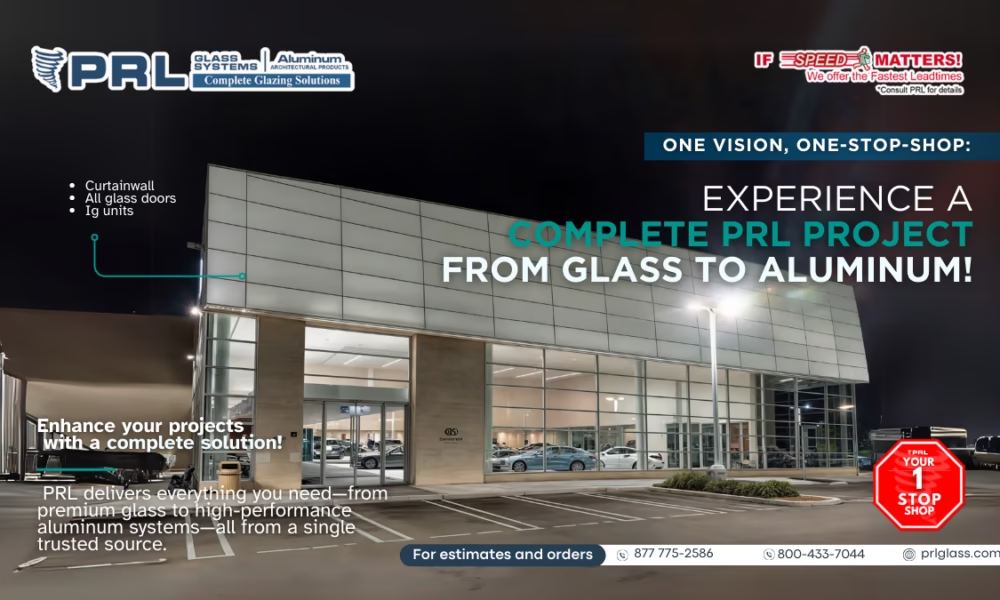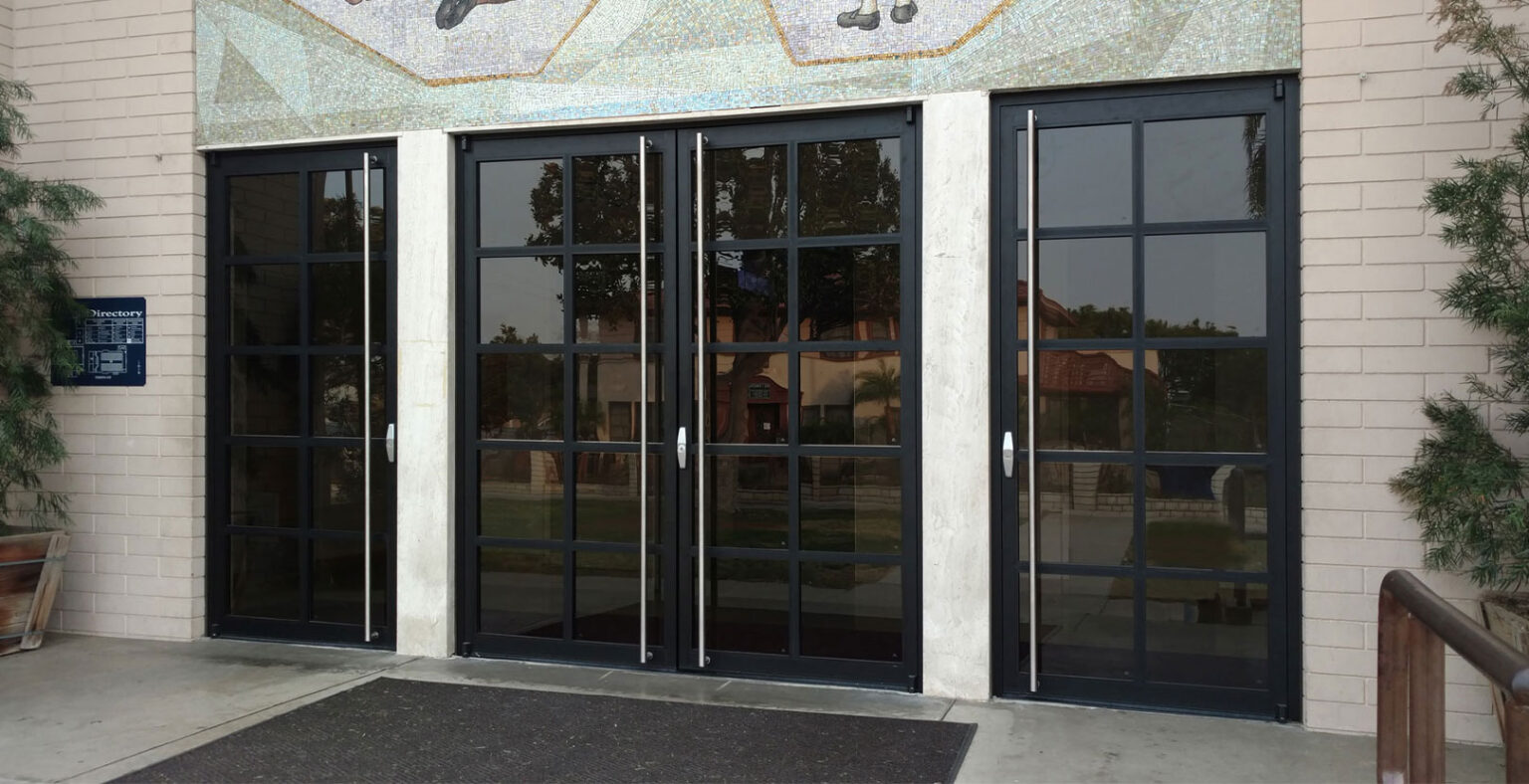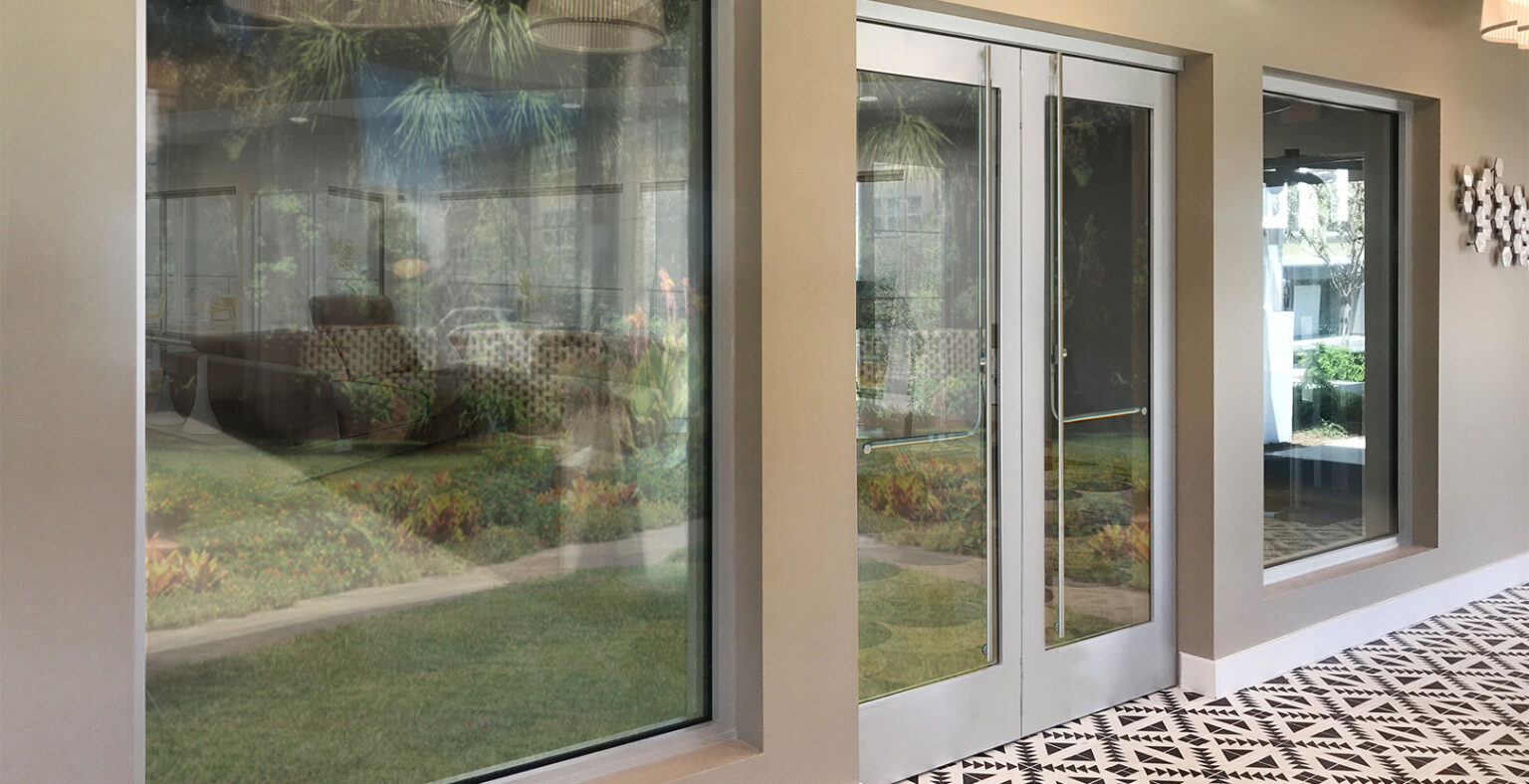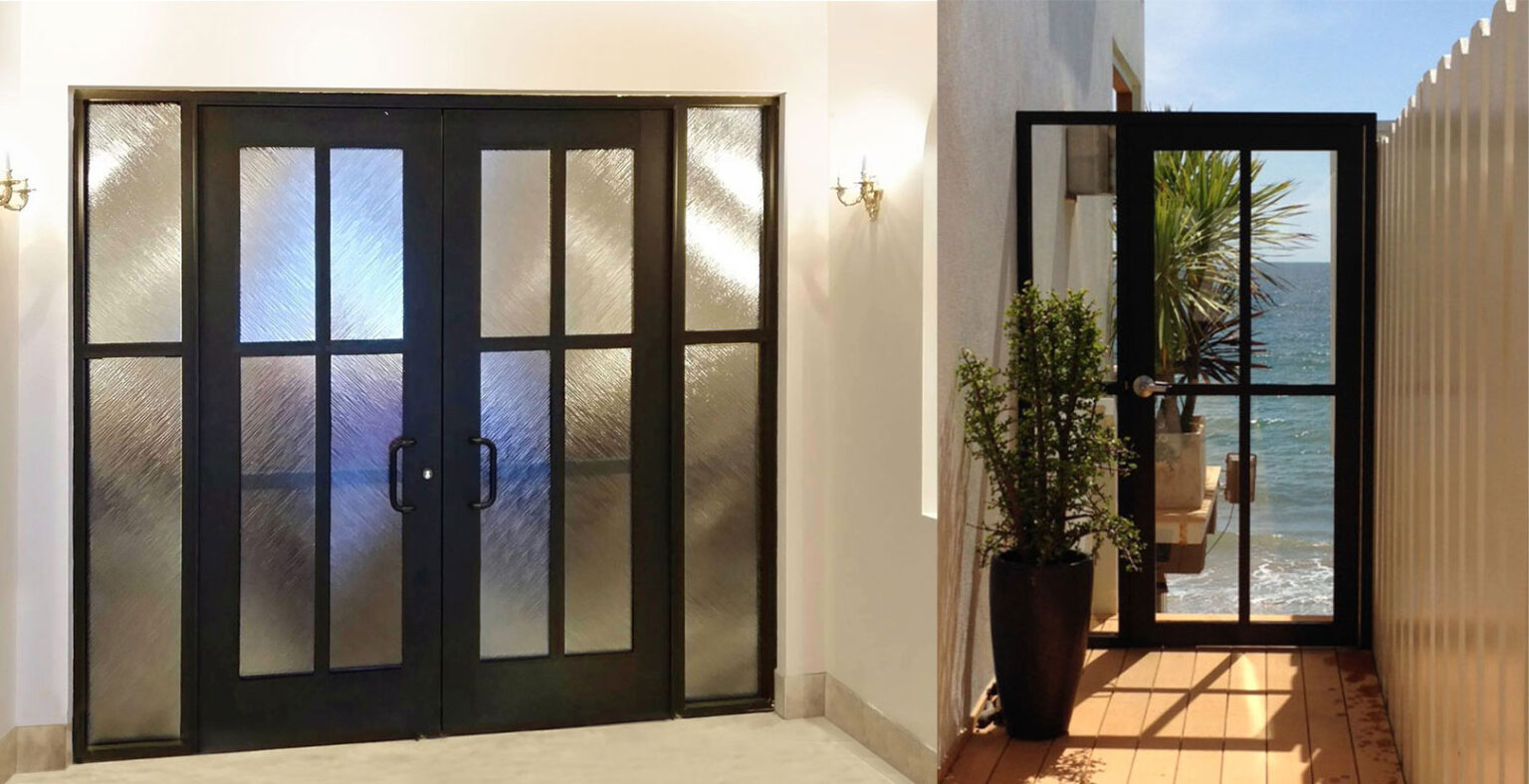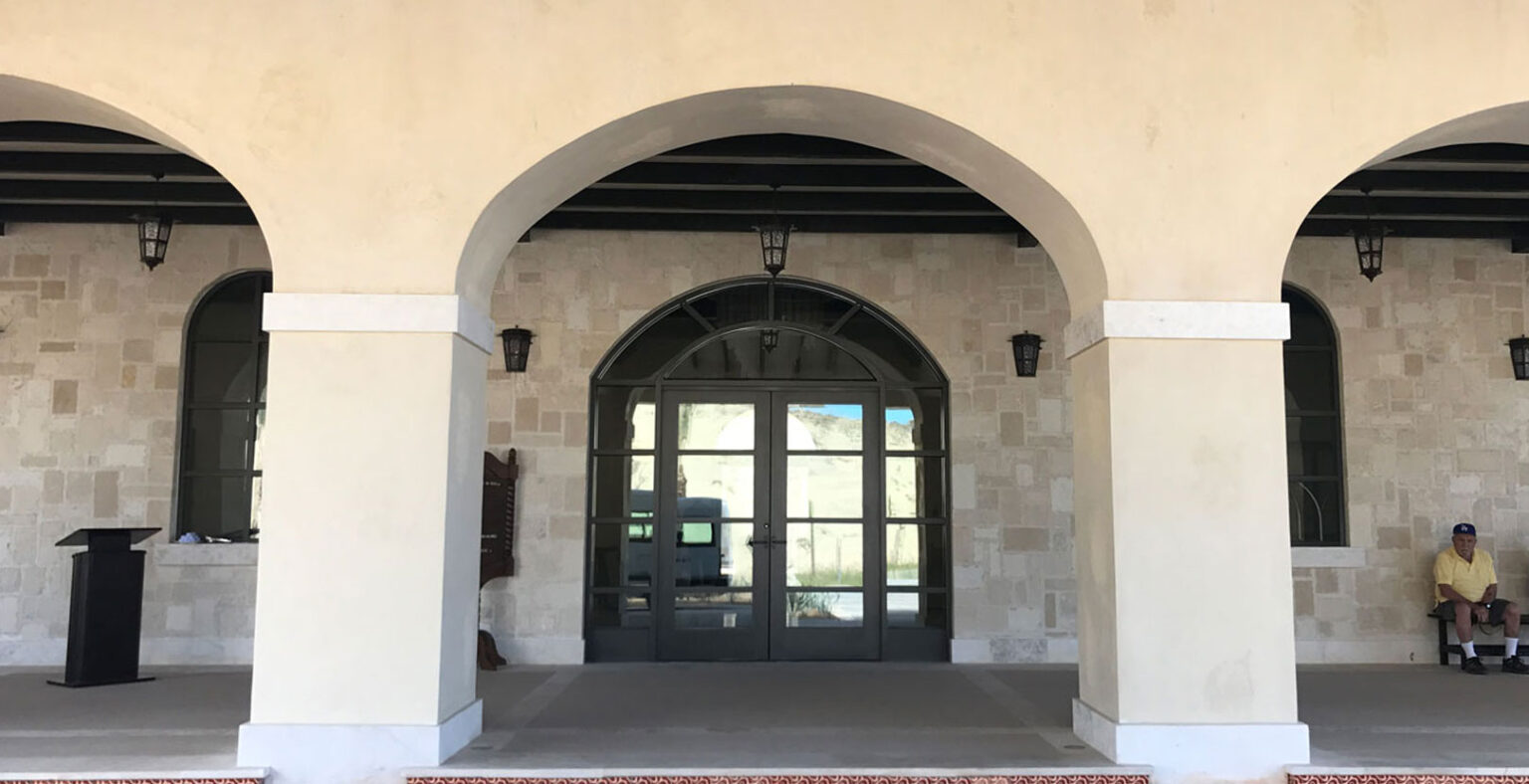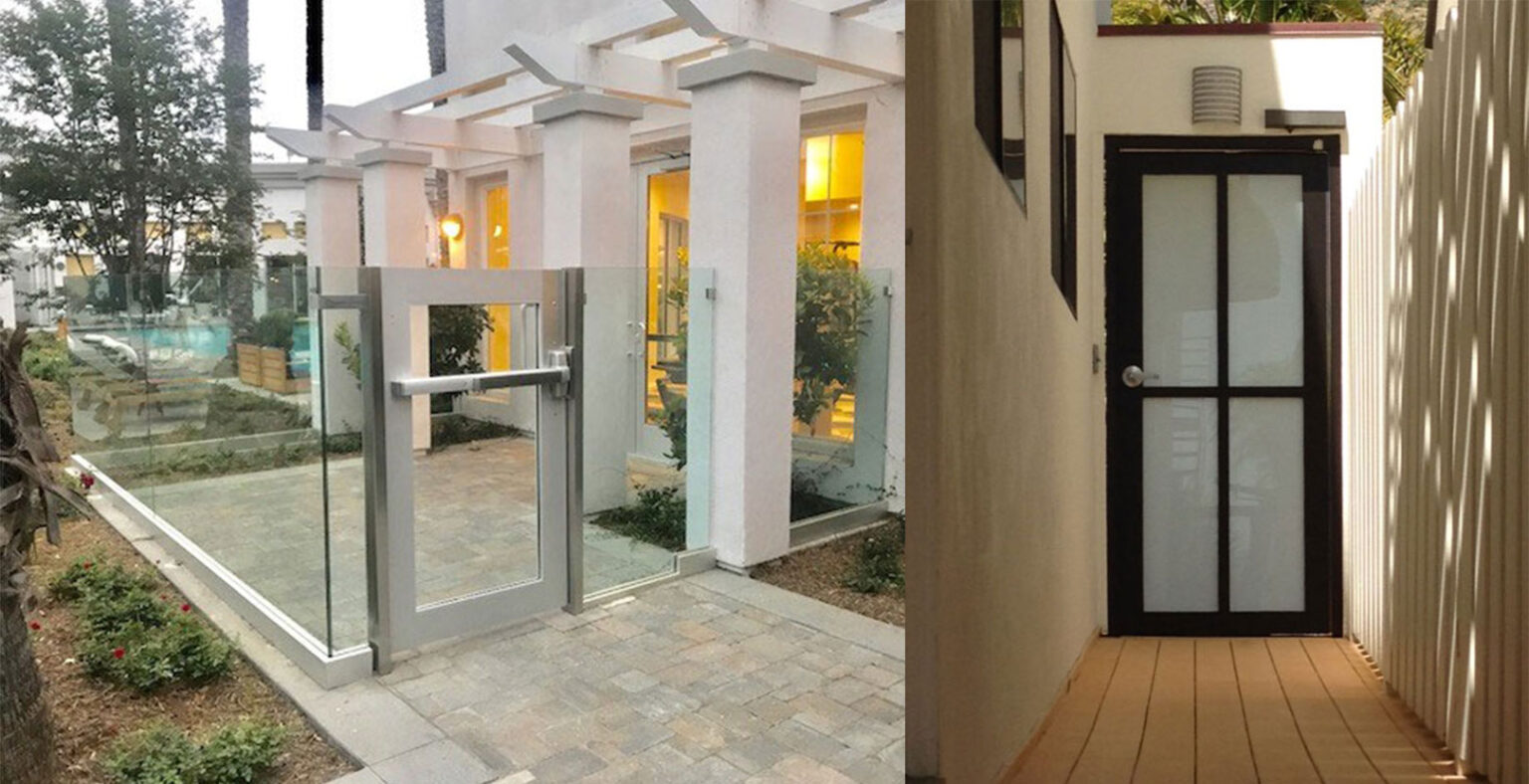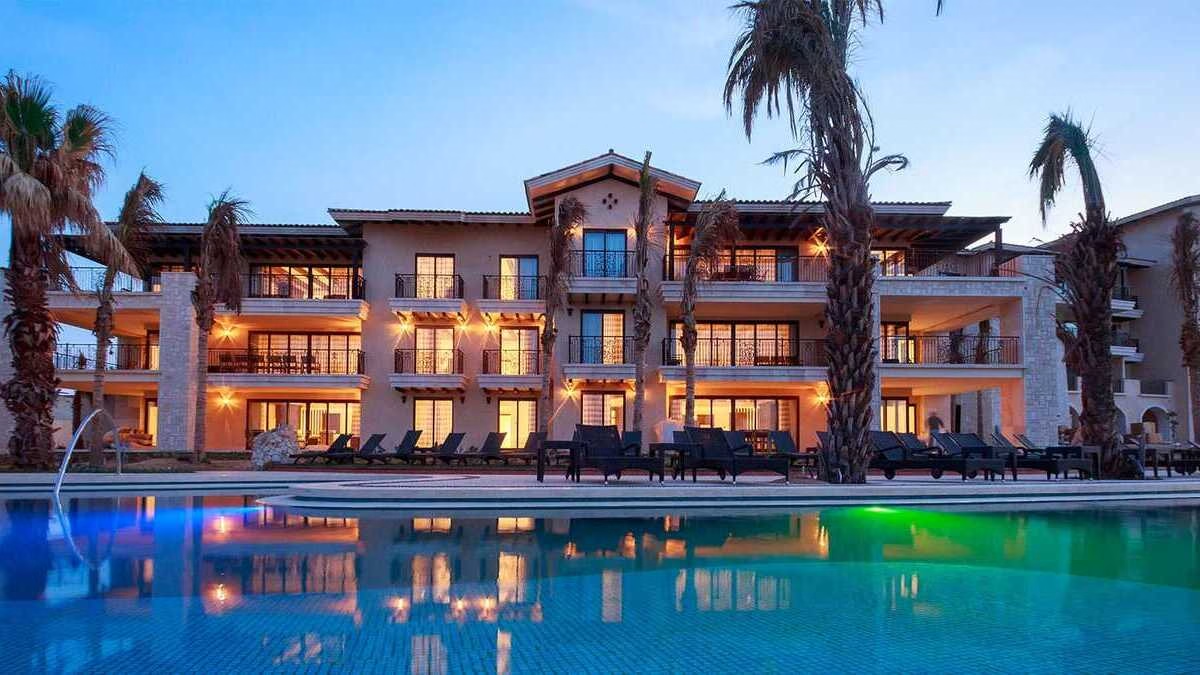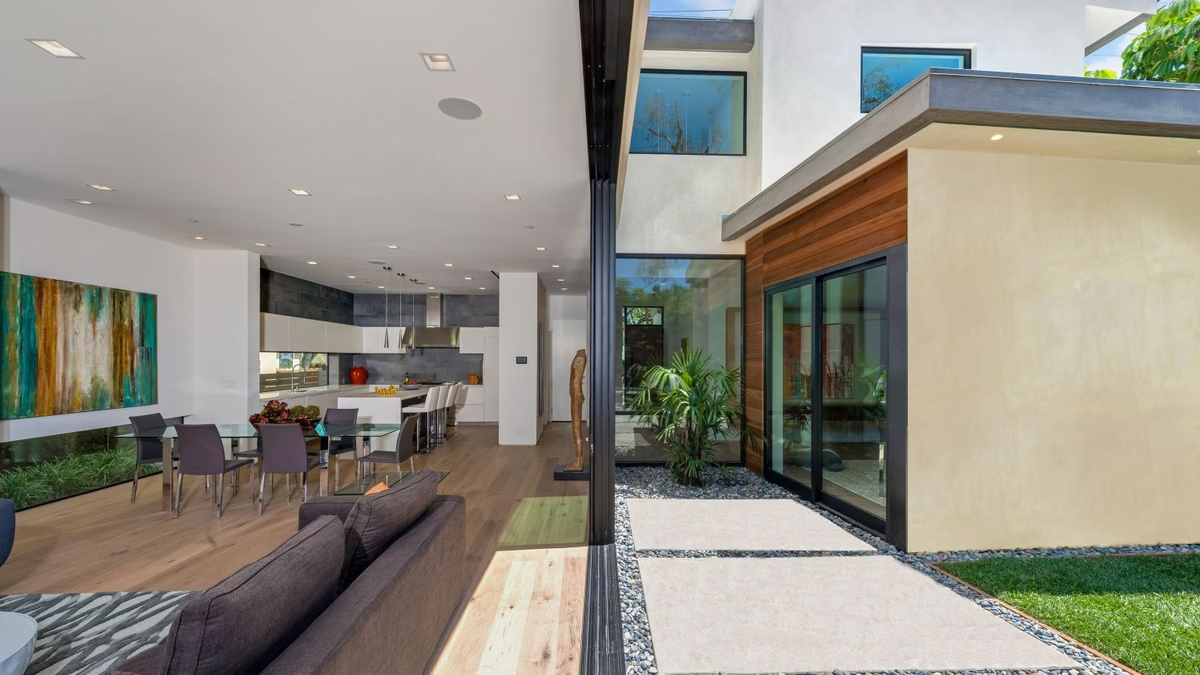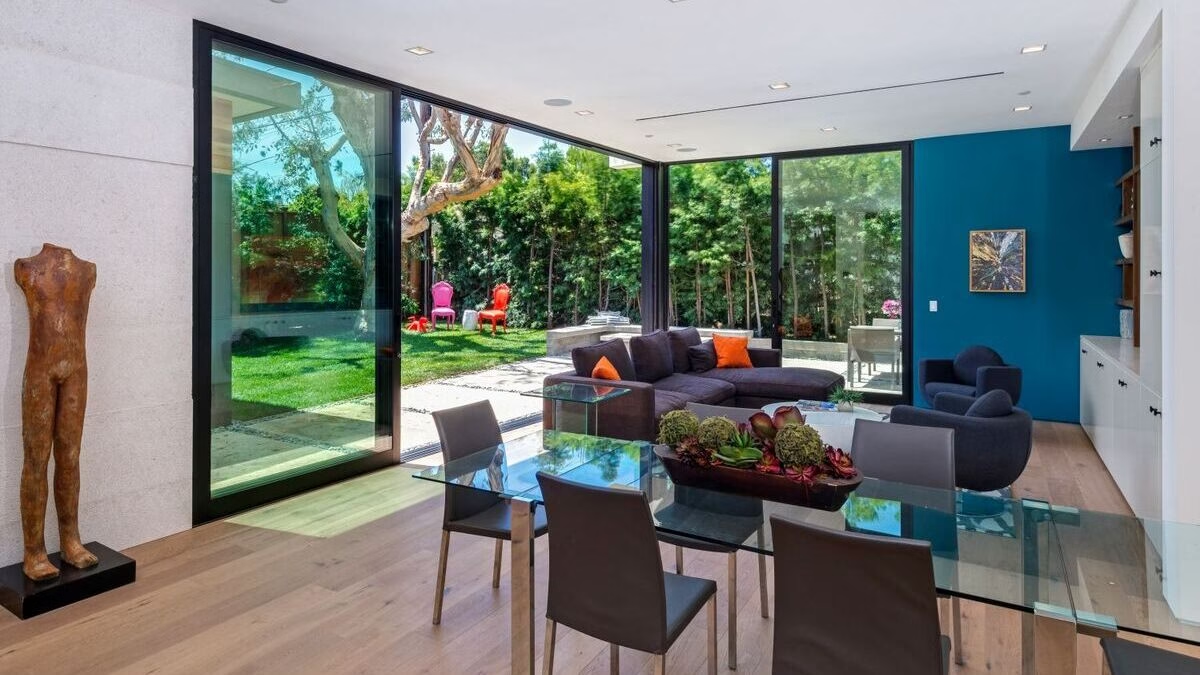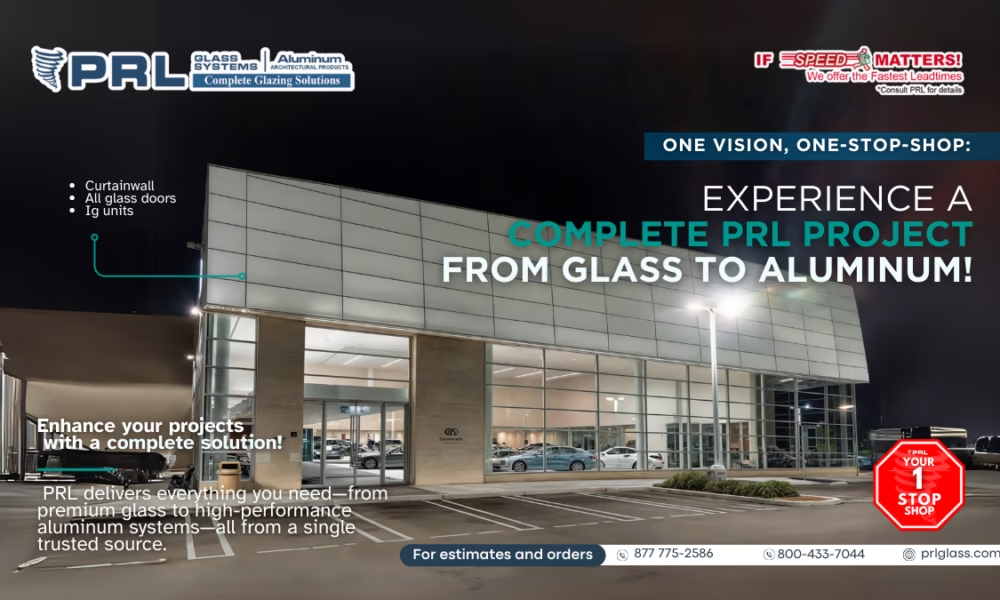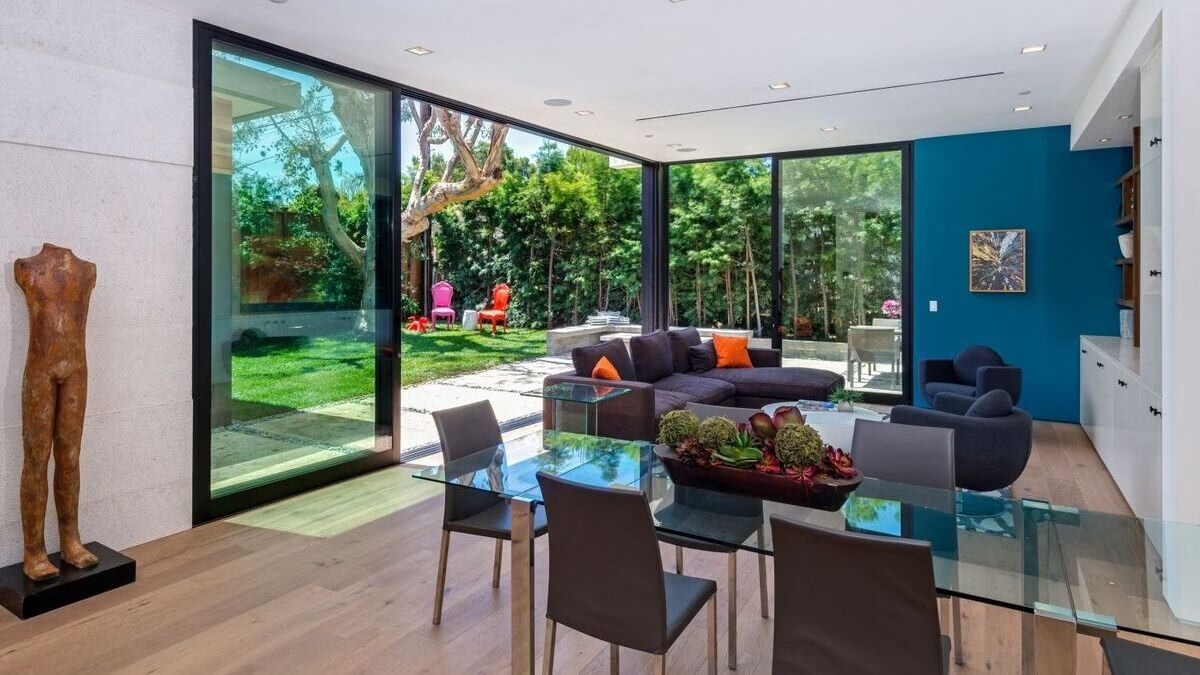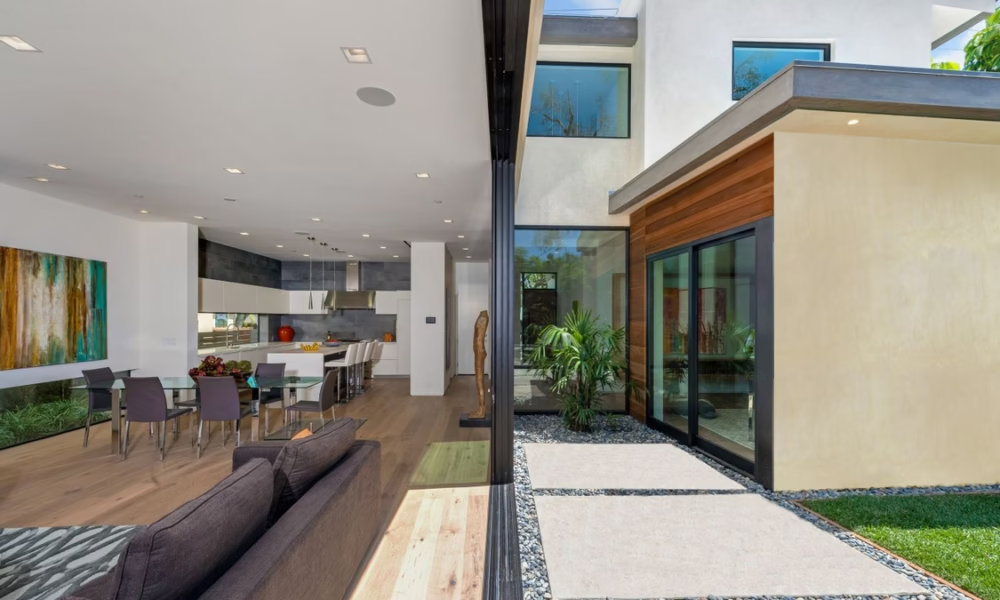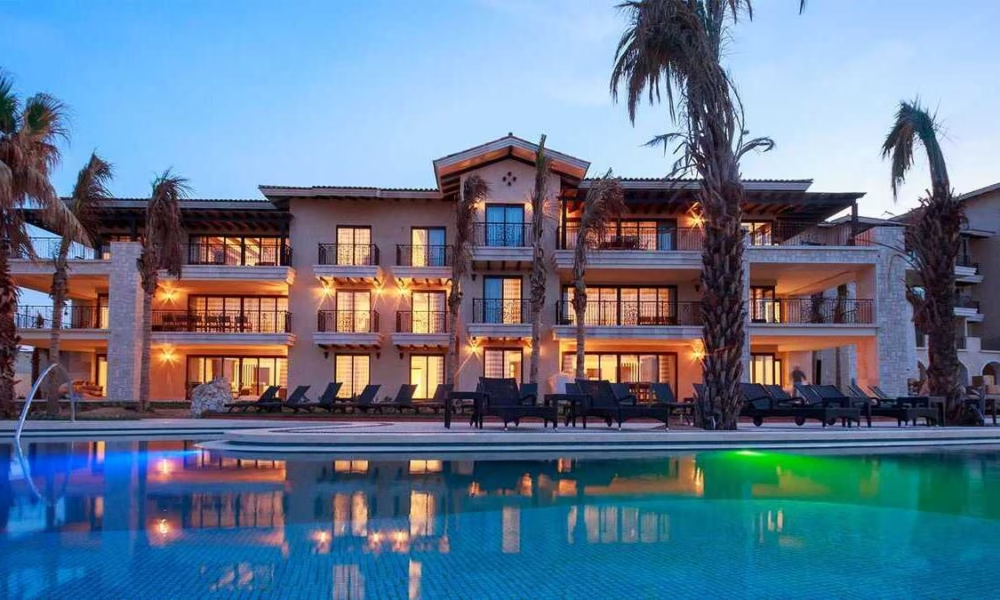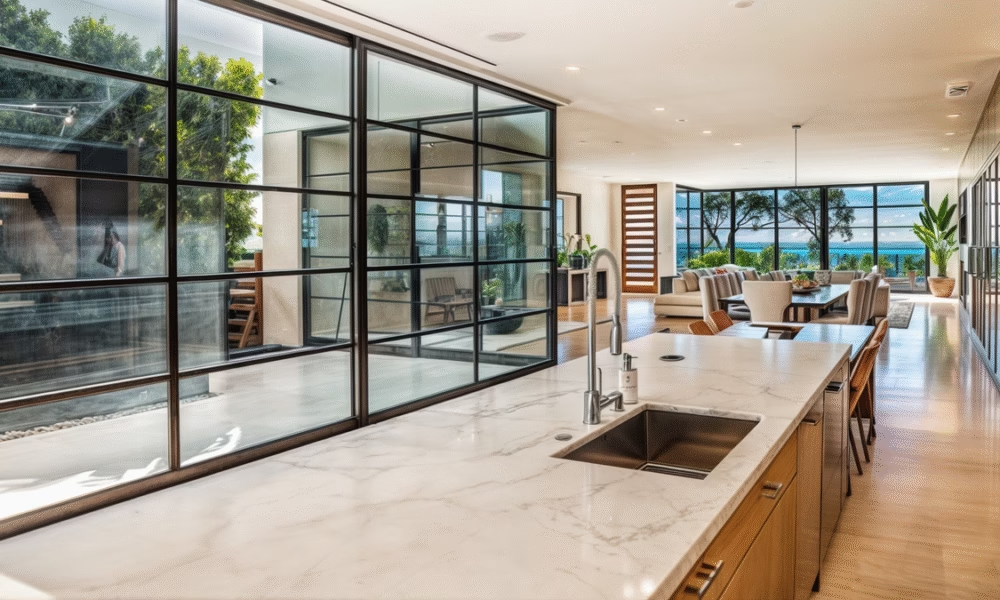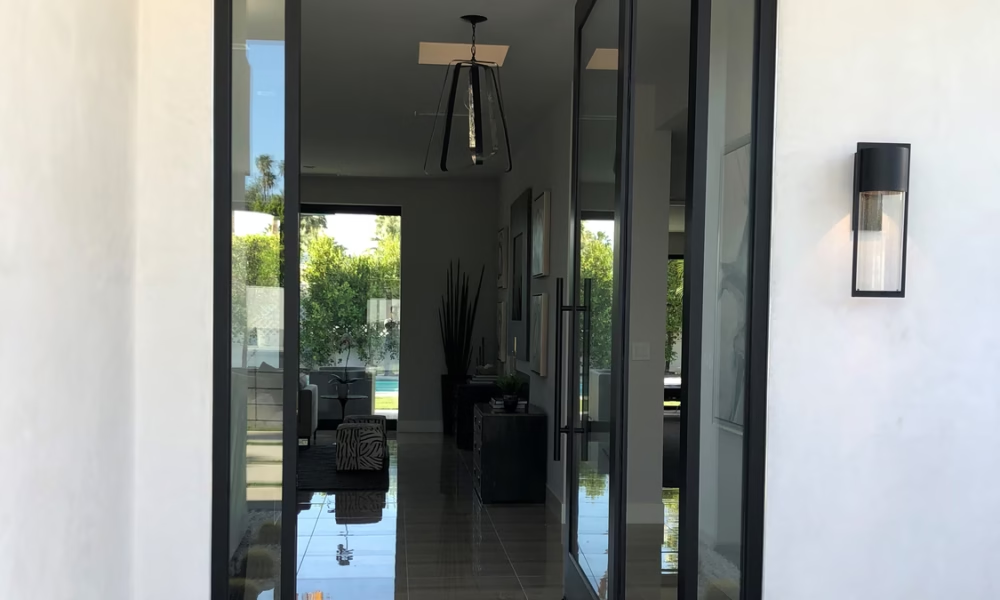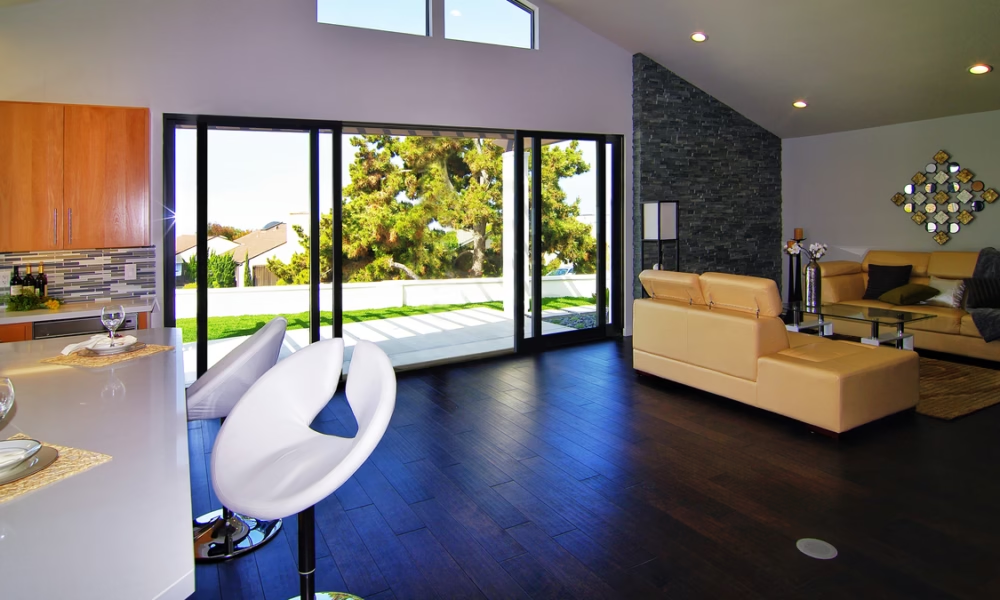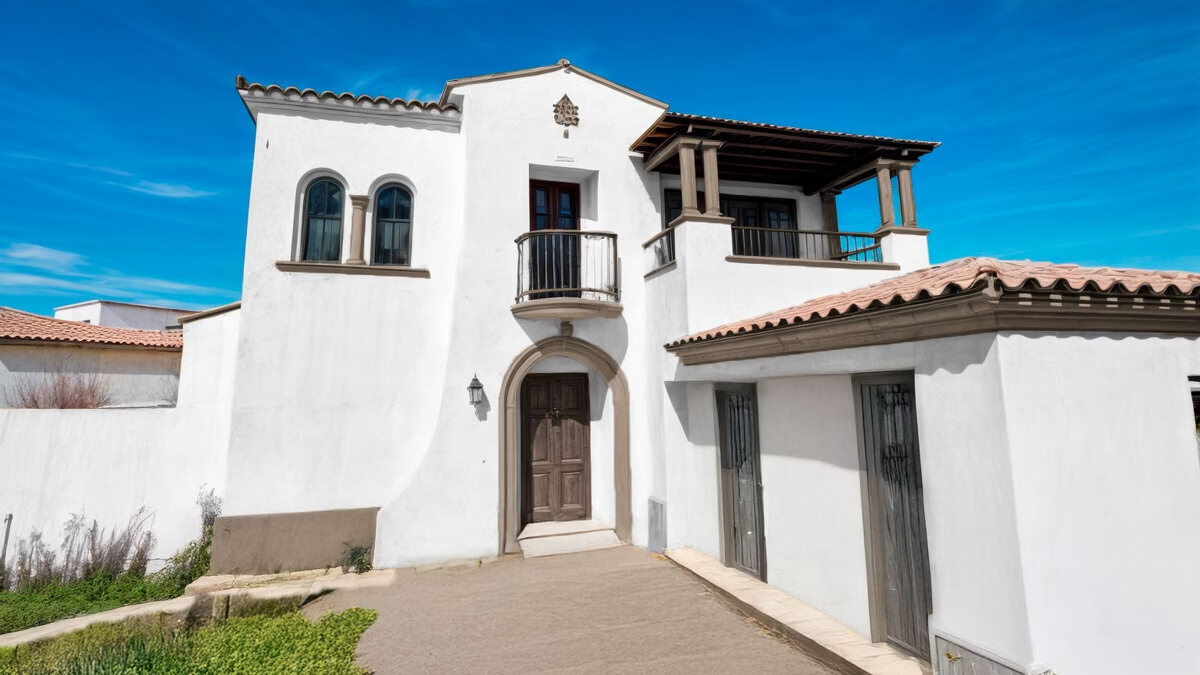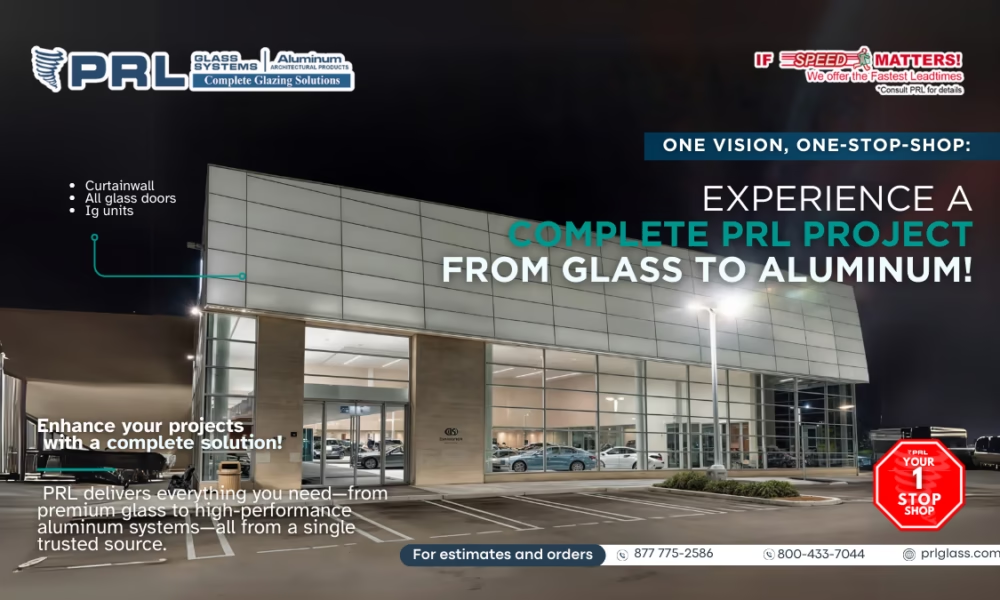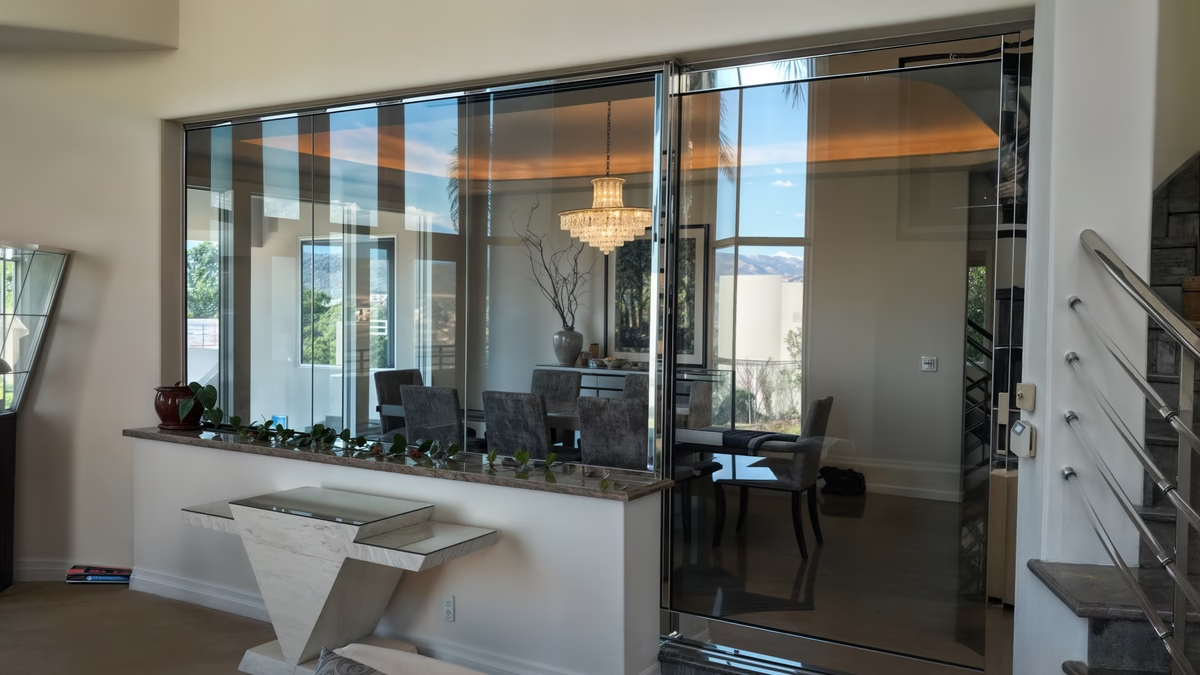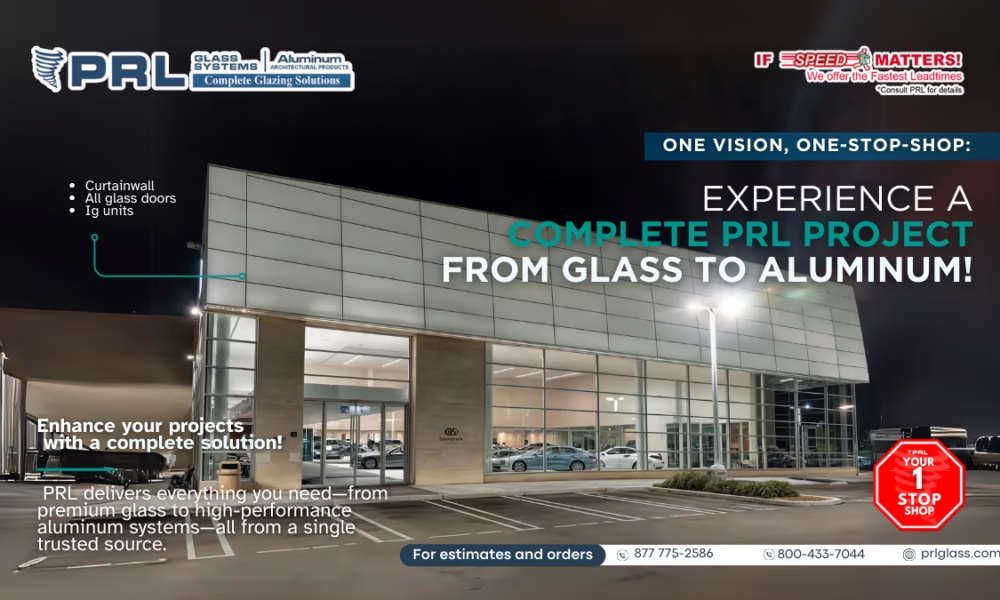Your Climate Determines the Type of Door: Why This Matters in Luxury Residential Architecture
When selecting a premium aluminum door, it’s not enough for it to look great. In high-end residential projects, the door must maintain its performance for years, without warping, leaking, corroding, or losing airtightness.
Climate conditions directly impact how a door performs:
Climate Condition: | Standard Door Risks: | Premium Doors Offer: |
Rain / Humidity: | Water leaks, corrosion, mold on seals | Full perimeter seals + airtight frame + corrosion-resistant finishes |
Wind / Storms: | Frame vibration, torsion, glass breakage | Impact-resistant glass + reinforced structure + multipoint locking |
Extreme Heat / Temperature Changes: | Heat transfer, loss of energy efficiency | Thermal break system + insulated glass units |
Urban Noise / High Traffic: | Noise transmission, less privacy, intrusion risk | Acoustic laminated glass + multipoint locking |
Aesthetics matter, absolutely. But engineering is what determines durability and long-term performance. Luxury residential doors like Sunny Lux combine aesthetics and performance through:
- Thermal broken system to reduce heat transfer and improve indoor comfort
- 4-point locking system for urban-level security and airtightness
- Optional impact-resistant glass for coastal/windy regions or storm-prone zones
✅ Result: luxury + engineering + proven performance
What Should Aluminum Doors Include for Rainy, Humid, or Storm-prone Climates?
When a door will be exposed to constant rain, humidity, or storms, deterioration can become noticeable, and in extreme cases, irreversible. In coastal or rainy climates, a standard aluminum door may show corrosion, leaks, and sealing failure within just a few months.
These are the non-negotiable characteristics a luxury aluminum door must include for these environments:
High-performance perimeter seals
A premium door must incorporate full perimeter gaskets and weather-stripping to ensure water does not penetrate even during heavy storms.
Benefits:
- Prevents water infiltration
- Improves thermal efficiency
Hermetic frame + extruded aluminum profiles
High-density extruded aluminum and a fully assembled, reinforced frame maintain the door’s structure even under wind pressure. Avoid systems with thin or weak joints because they deform and lose sealing capacity quickly.
Corrosion-resistant finishes
In humid or salty ocean environments, the aluminum finish is a critical factor.
Ideal finishes:
- Premium anodized aluminum, or
- Both protect against corrosion, color fading, and premature surface wear over time.
Impact-resistant glass option
Doors like Sunny Lux can be configured with laminated impact-resistant glass to withstand storms, wind-borne debris, and strong impacts (including baseball bats, steel rods, or forceful kicks).
If the glass breaks, the internal laminate keeps the fragments attached, maintaining security and protecting the interior.
Your door must include:
- Hermetic reinforced frame
- Corrosion-resistant finish (anodized or powder-coated)
- Impact-resistant laminated glass (not standard tempered glass)
What Should Aluminum Doors Include for Extreme Heat or Thermal Variation?
In regions where exterior temperatures can exceed 104 °F (40 °C), such as desert climates, southern U.S. states, or areas with intense year-round sunlight, a conventional aluminum door can warp, transfer heat into the interior, or lose its airtight seal over time.
The good news is that premium aluminum doors are engineered to perform under these conditions. Here are the technical features a luxury aluminum door must include to withstand extreme heat:
Thermal Break
A thermally broken system separates the interior side of the aluminum profile from the exterior. Its function is to prevent heat from transferring into the home.
Benefits:
- Reduces A/C energy consumption
- Prevents the frame from heating up to the touch
- Maintains stable indoor temperatures
- Without a thermal break, aluminum acts as a thermal bridge, transferring exterior heat to the interior.
Insulated Glass Unit (IGU)
An insulated glass unit consists of two glass panels separated by an air or argon gas chamber.
Benefits:
- Increases energy efficiency
- Improves acoustic insulation
In premium residential or commercial projects, IGUs are often combined with low-E coatings which reflect solar radiation and help keep interiors cool.
UV-resistant finishes
Anodized or powder-coated finishes maintain color and prevent the frame from overheating. Lower-quality systems tend to fade, discolor, or crack after prolonged UV exposure.
What Should Aluminum Doors Include for High-Wind, Storm or Impact-Risk Areas?
When a home is located in a region with seasonal storms, hurricanes, or winds above 70 mph (112 km/h), the entry door becomes a structural barrier. A standard door can vibrate, deform, or even detach from the frame during strong wind gusts.
A premium aluminum door is engineered to withstand these conditions thanks to three essential elements that every luxury residential door should include:
- Impact-resistant laminated glass (NOT standard tempered glass)
- Tempered glass shatters into small pieces when broken
- Impact-resistant laminated glass remains attached to the inner film, even after severe impact
Benefits:
- Withstands wind-borne debris (sand, branches, stones)
- Prevents dangerous glass detachment
- Keeps the interior protected even if the glass cracks
Multi–point locking system (4-point locking system)
A standard door locks at a single point. A premium door distributes the locking pressure across four anchoring points, preventing wind or intruders from forcing the panel open.
Benefits:
- Reduces vibration and panel movement
- Keeps a tighter seal against the frame
- Increases urban security and intrusion resistance
Reinforced frame + certified structural testing
In high-wind zones, the frame must be able to resist positive and negative pressure without deforming.
Look for these specs:
- ASTM E330 structural load testing
- Wind-pressure performance certification
- Extruded aluminum profiles — not thin, fabricated metal
Sunny Lux, for example, has been tested at 30.08 psf positive and negative pressure, guaranteeing structural stability under extreme conditions.
What Should Aluminum Doors Include for Noisy Urban Areas with Intrusion Risks?
In premium residential urban areas, such as high-rise apartments, homes on busy avenues, or properties with high pedestrian flow, an entry door must fulfill two key functions:
✅ Block exterior noise
✅ Protect against intrusion attempts
Standard doors aren’t designed for this. However, premium aluminum doors are.
Acoustic laminated glass (sound control)
Not all laminated glass reduces noise. For real acoustic insulation, the glass must include special acoustic PVB interlayers, which absorb sound vibrations and prevent noise transmission.
Benefits:
- Reduces exterior noise (traffic, neighbors, construction, sirens, etc.)
- Increases privacy and interior comfort
- Ideal for urban or multi-family buildings
Sunny Lux doors can be configured with acoustic laminated glass + IGU’s (Insulated Glass Units) for maximum noise reduction.
Multi–point locking system (urban security)
While a standard door locks at just one point, a premium door reinforces security with multiple locking points along the frame, preventing the door from being forced open.
Benefits:
- Difficult to pry open from the outside
- Improves airtightness (reduces air and noise infiltration)
- Provides a feeling of safety and a solid close
- Sunny Lux includes a 4-point locking system for maximum protection
Reinforced structure and robust aluminum profiles
Low-cost doors use thin aluminum or frames assembled with visible screws. Premium doors use high-density extruded aluminum, with precise joints that prevent vibration and noise.
